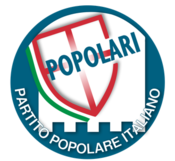
Christian Democracy was a Christian democratic political party in Italy. The DC was founded on 15 December 1943 in the Italian Social Republic as the nominal successor of the Italian People's Party, which had the same symbol, a crusader shield. As a Catholic-inspired, centrist, catch-all party comprising both centre-right and centre-left political factions, the DC played a dominant role in the politics of Italy for fifty years, and had been part of the government from soon after its inception until its final demise on 16 January 1994 amid the Tangentopoli scandals. Christian Democrats led the Italian government continuously from 1946 until 1981. The party was nicknamed the "White Whale" due to its huge organisation and official colour. During its time in government, the Italian Communist Party was the largest opposition party.

The Union of the Centre, whose complete name is "Union of Christian and Centre Democrats", is a Christian-democratic political party in Italy.

Democracy is Freedom – The Daisy, commonly known simply as The Daisy, was a centrist political party in Italy. The party was formed from the merger of three parties within the centre-left coalition: the Italian People's Party, The Democrats and Italian Renewal. The party president and leader was Francesco Rutelli, former mayor of Rome and prime ministerial candidate during the 2001 general election for The Olive Tree coalition, within which The Daisy electoral list won 14.5% of the national vote.

Pier Ferdinando Casini is an Italian politician. He served as President of the Chamber of Deputies from 2001 to 2006.

The Christian Democratic Centre was a Christian-democratic political party in Italy from 1994 to 2002. Formed from a right-wing split from Christian Democracy, the party joined the centre-right coalition, and was a member of the European People's Party (EPP).

The United Christian Democrats was a minor Christian democratic political party in Italy. The CDU was a member of the European People's Party from 1995 until 2002.

The Democrats was a centrist and social-liberal political party in Italy.

Italian Renewal was a centrist and liberal political party in Italy.

The Network, whose complete name was Movement for Democracy – The Network, was a political party in Italy led by Leoluca Orlando.
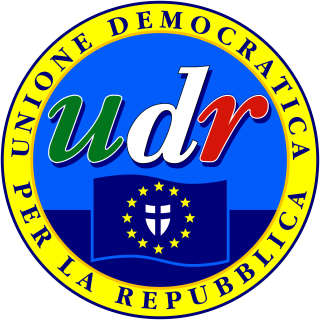
The Democratic Union for the Republic was a short-lived Christian-democratic and centrist political party in Italy.
The Christian Democrats for the Republic was a Christian-democratic political party in Italy.

The Pact for Italy was a centrist political and electoral alliance in Italy launched by Mario Segni and Mino Martinazzoli in 1994.

The Alliance of Progressives was a left-wing political alliance of parties in Italy formed in 1994, with relevant predecessors at local level in 1993. The leader of the alliance was Achille Occhetto. The alliance was a predecessor of the modern-day centre-left coalition.

Christian Democracy is a minor Christian democratic and strongly social-conservative political party in Italy. The current leader of the party is Denis Martucci.
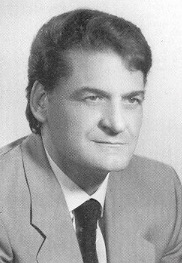
Fermo "Mino" Martinazzoli was an Italian lawyer, politician, and former minister. He was the last secretary of the Christian Democracy (DC) party and the first secretary of the Italian People's Party (PPI) founded in 1994.
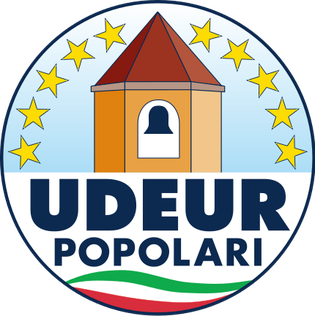
The Union of Democrats for Europe, also known as UDEUR Populars, was a minor centrist, Christian-democratic political party in Italy.
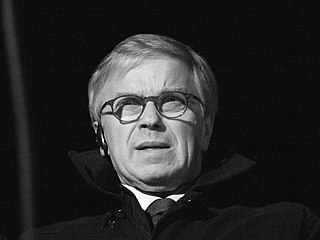
Pierluigi Castagnetti is an Italian politician.

Gerardo Bianco was an Italian politician.
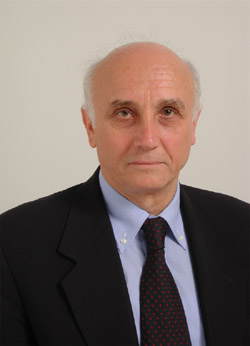
Giovanni Bianchi was an Italian politician.
